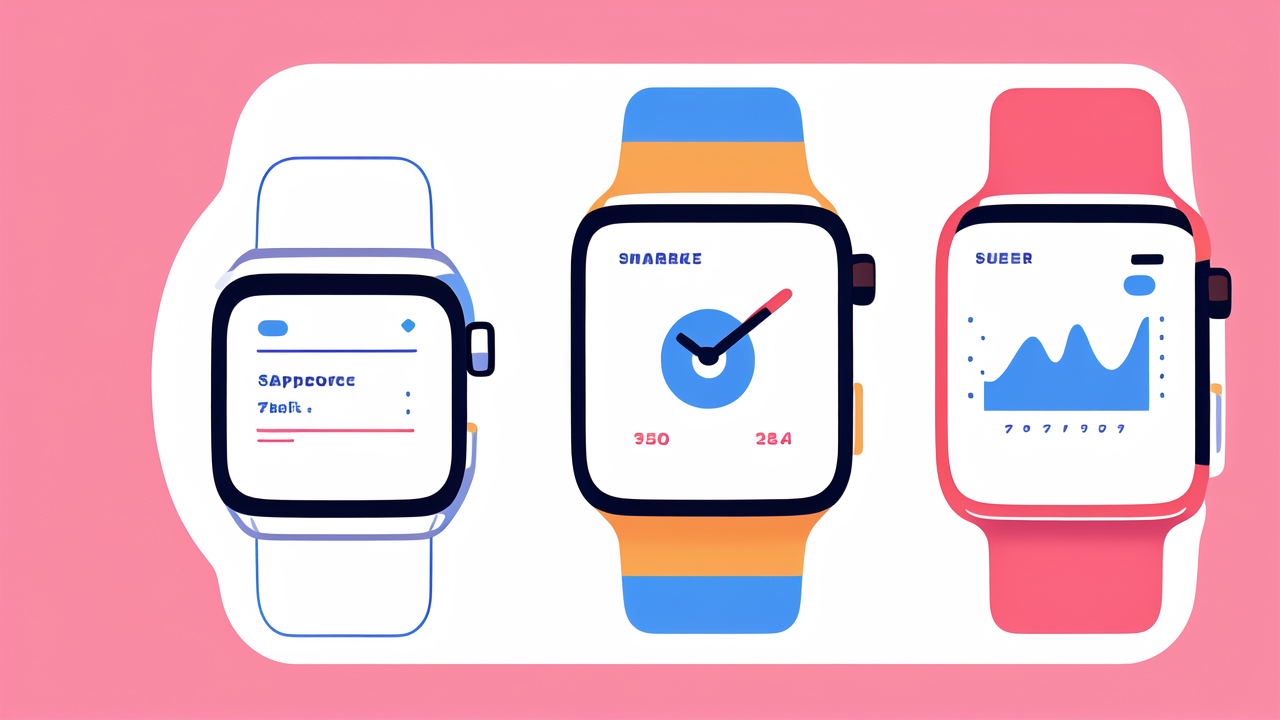The Rise of Smart Pro Watches in the Market
Market Evolution: From Simple Timepieces to Smart Devices
The journey of watches has been remarkable. They started as simple timepieces. Now, they're smart devices on our wrists. Smart pro watches have changed the game. They offer features beyond telling time. These devices can track fitness, send messages, and even make calls.

The evolution was gradual. First came digital watches. Then, basic fitness trackers appeared. Now, we have full-fledged smart pro watches. These devices pack powerful tech into a small form. They can run apps, monitor health, and connect to our phones. The market has grown rapidly in recent years. Consumers want more from their wrist wear. Smart pro watches meet this demand with style.
Analyzing the Demand for High-Tech Watches in the United States
The U.S. market for smart pro watches is booming. More Americans are embracing this tech. They see value in having a mini-computer on their wrist. Sales figures show steady growth year over year. Many factors drive this demand. Health consciousness is a big one. People use these watches to track steps, heart rate, and sleep.
Convenience is another factor. Smart pro watches let users check notifications without phone. This appeals to busy professionals and tech-savvy youth alike. The U.S. market also values brand prestige. High-end smart watches are status symbols. They blend tech with fashion. This combination is particularly appealing to American consumers.
The Key Players and Innovators in the Smart Watch Industry
Several companies lead the smart pro watch market. Apple is a major player with its Apple Watch. Samsung offers strong competition with Galaxy Watch series. Fitbit, now owned by Google, focuses on fitness features. Garmin targets outdoor enthusiasts and athletes.
These companies constantly innovate. They add new features and improve existing ones. Apple introduced ECG monitoring. Samsung brought rotating bezels for navigation. Fitbit perfected sleep tracking. Garmin excels in GPS and battery life. Competition drives progress. Each new release pushes the boundaries of what's possible.
Smart Pro Watches and Their Impact on Consumer Lives
Lifestyle Enhancements: Fitness, Productivity, and More
Smart pro watches have become integral to many people's lives. They offer a range of benefits:

- Fitness tracking: Steps, calories, workouts
- Health monitoring: Heart rate, sleep patterns, stress levels
- Productivity tools: Calendar alerts, to-do lists, voice assistants
- Communication: Calls, texts, emails at a glance
- Navigation: GPS, maps on your wrist
- Entertainment: Music control, podcast playback
These features enhance daily life. They make staying healthy easier. They boost productivity. They keep us connected. Smart watches motivate users to be more active. They remind us to stand up and move. They track progress towards fitness goals. This encourages healthier lifestyles.
The Role of Smart Watches in Professional Environments
Smart pro watches are finding their place in work settings. They offer discreet ways to stay connected. Professionals can check important notifications without seeming rude. Smartwatches can schedule meetings and set reminders. They allow quick responses to urgent messages.
In some industries, smart watches have specific uses. Healthcare workers use them to track patient data. Retail staff use them for inventory management. Managers use them to coordinate teams. The devices can increase efficiency and communication. However, they also raise questions about work-life balance. The line between work and personal time can blur.
Privacy and Security Considerations in a Connected World
As smart pro watches collect more data, privacy concerns grow. These devices know our location, health stats, and daily habits. This information is valuable and sensitive. Users must trust companies to protect their data. Manufacturers are improving security features. They use encryption and secure storage. But risks still exist.
There are also concerns about hacking. A compromised smart watch could leak personal info. It might allow unauthorized access to connected devices. Users need to be aware of these risks. They should use strong passwords and keep software updated. Companies must be transparent about data use. They should give users control over their information.
The Future of Smart Watches: Trends and Predictions
Technological Advancements on the Horizon
The future of smart pro watches looks exciting. New technologies are emerging:

- Flexible displays for wrap-around screens
- Advanced health sensors for early disease detection
- Longer battery life through efficient chips
- 5G connectivity for faster data transfer
- AI assistants for more natural interactions
These advancements will make smart watches even more useful. They might detect health issues before symptoms appear. They could become powerful enough to replace smartphones for some tasks. The goal is to make them more integrated into our lives. Yet, they should be less intrusive.
The Importance of Ecosystem Compatibility and Open Standards
As smart watches evolve, compatibility becomes crucial. Users want devices that work with all their tech. Open standards could help achieve this. They would allow different brands to work together. This could lead to more innovation. It would give consumers more choice. Companies are starting to see the benefits of this approach.
Apple and Google are working on cross-platform standards. This could make health data more portable. It would let users switch brands without losing data. Open standards could also improve app development. Developers could create apps that work on multiple platforms. This would increase the variety of apps available.
How Regulatory Changes Could Shape the Smart Watch Market
Regulations will play a big role in the smart watch future. Privacy laws are getting stricter. This affects how companies collect and use data. Health features may need medical approval. This could slow down innovation. But it would ensure safety and accuracy. Regulations might also address e-waste concerns. They could require longer product lifespans or easier recycling.
Government policies on tech imports could impact the market. Trade disputes might affect supply chains. This could change prices and availability. Consumer protection laws might require more transparency. Companies may need to clearly state what data they collect. These changes could reshape the smart watch landscape. They might favor some companies over others. The industry will need to adapt to these regulatory challenges.




Leave a comment
This site is protected by hCaptcha and the hCaptcha Privacy Policy and Terms of Service apply.